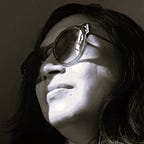Late, Later, Latest — The Story of a Writing Life
At 25, when her novel was still in progress, the writer typing away, briefly raising her head above the computer screen to gaze beyond the window, was confident. Titled White Teeth, the novel, which revolved around two wartime friends and about Britain’s relationship with immigrants from the Commonwealth countries, had already been named 100 best books of the 21st century a year before. Upon its publication in the year 2000, true to the writer’s confidence, White Teeth became an instant bestseller, and Zadie Smith went on to write many more works, mainly in the ‘hysterical realism’ genre.
Smith is a contemporary writer many would like to emulate — if, and only if…
In different circumstances, wondering what life and career would have been possible for them had they been brought-up in a different part of the world, in a of different set of permutations-combinations, is an exercise women in many parts of the world still take up daily. Think Iran, think Afghanistan, even Croatia or Ukraine. How many people are giving-up their dreams and ideas at this very moment because of the situations they are in?
India-born US astronaut Kalpana Chawla who died in the space shuttle Columbia accident once remarked: For me, it was very far-fetched to think I get to fly on the space shuttle because I lived in India in a very small town. Forget about space, I didn’t even know if my folks were going to let me go to the engineering college.
How do you rate and come to terms with the disadvantages that nature has ‘fitted’ you with? Admittedly, I have been told a hundred times to see mistakes and misfortunes as one’s tools, see them as things that may be turned to advantage should one know how to. I understand that is the best alternative to try and approach given that our means, especially in less-developed nations, are so limited.
Fortunately, writing is one of the few careers that can start really late, when one has come to grips, somewhat, with the disadvantages they must live with as a compromise — disability, poverty, lack of opportunities, chronic illness included.
Although again, admittedly, most of the late-blooming writers, regardless of gender, have had some kind of career before taking up writing seriously. There’s a big list of names: Mary Wesley was 57 when her first of three children’s books were published. Toni Morrison was aged 40 at the time of her first major work. In fact, starting late is more common among writers than not. Thomas Michael Keneally was 42 when his non-fiction novel Schindler’s Ark won the Booker Prize and was subsequently made into the multiple award-winning film Schindler’s List. Raymond Chandler published The Big Sleep, his first novel, when he was 51. Famously a slow writer, Chandler was also a consummate craftsman, who once said that, Everything a writer learns about the art or craft of fiction, takes just a little away from his need or desire to write at all. In the end he knows all the tricks and has nothing to say.
At any rate, Zadie Smith’s case, at age 25, is a literary fairytale. But not all stories are, or can be. I am baffled by the number of writers who have said they wanted to quit after decades of trying to break into the publishing industry because it was not working for them, that there was no hope for them. I understand the sentiment of artistic, deeply-talented people who give-in to doubt. Successful career writers are in part to blame for progressively associating this image of person who can handle all, especially the low miserable parts, the rejections, and balance them with these glitzy marketing tours, book launches, and media interviews. What is the struggling writer at the bottom of the ladder supposed to assume? That they are not doing enough?
Melissa Llanes Brownlee, acclaimed flash fiction writer of our times, writes in her blog: I do have to admit that I also feel frustrated at myself when I don’t have a similar level of success and I spiral down into the why not me, why not my work, why am I not being recognized, published, agented? It’s a nasty place to be. I don’t like it. I work hard to fight against it, but it lingers in the back of my brain. It weaves its spiky tendrils through my thoughts when I scroll through Twitter, invading my brain, making me feel shitty. I don’t want to feel shitty.
Brownlee is not alone in this sentiment. Many writers echo similarly, and recount situations where they almost thought of quitting. What happens to those who stop trying? Especially working class, or single mothers or marginalized sections of the society? Many writers I know are trying to balance families with young children and work alongside their creative passions. They constantly find it the worst.
I am drawn to the question of ‘nature’s fitting’ again. Are women, therefore, irrespective of race, nationality and profession, ‘fitted’ to feel that between a choice of caregiving/family responsibilities and pursuing what is, at best, a part-time vocation, the maternal imperative is felt so deeply that the “choice” is reflexive?
I am not sure if one can answer this faithfully because no two situations are alike. And here again, late writing careers prove to rise up to the occasion — when you’re ‘finished’ with your responsibilities, and nobody has a demand on your time! It seems a perfect boon. I am definite many of our contemporaries will become successful full-fledged writers later in their life if, and only if…they keep at it. Writing doesn’t get worse with time. In that respect it is unlike most careers, rather it gathers the experience and outlook needed to shape and mold a style worthy enough to imitate the spontaneity of life itself.
